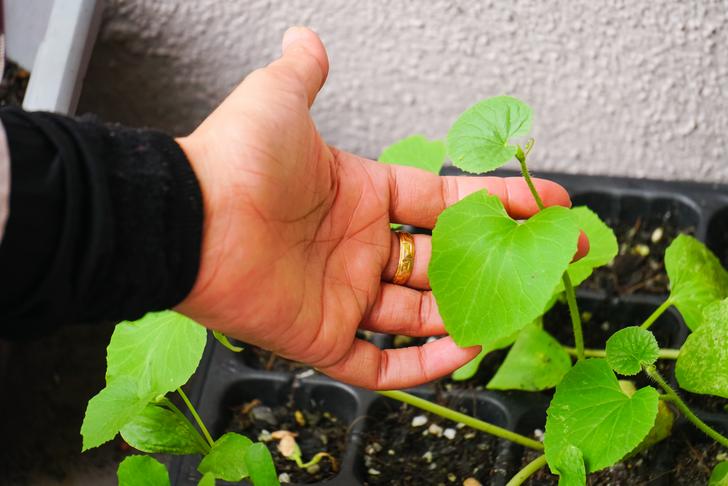The Joy of Gardening: Health and Well-being Benefits for Older Adults
Gardening has long been considered a therapeutic and relaxing activity for people of all ages. However, for older adults, the joy of gardening can go beyond the aesthetic pleasure of nurturing plants and flowers, providing significant health and well-being benefits. Research has shown that gardening can have a profound impact on physical, mental, and emotional well-being, making it an ideal activity for older adults to incorporate into their daily lives.
A Natural Workout
Gardening is an excellent form of low-impact exercise that can help older adults stay active and fit. Numerous physical tasks involved in gardening, such as digging, planting, watering, and pruning, can help improve strength, flexibility, and endurance. A 2017 meta-analysis of 22 studies found that gardening is associated with reductions in depression, anxiety, and body mass index, as well as increases in life satisfaction, quality of life, and sense of community [[1]].
Gardening can also help older adults maintain a healthy weight and reduce the risk of obesity-related health issues. Due to the prolonged periods of bending, squatting, and lifting involved in gardening, the activity serves to strengthen muscles and improve balance. For older adults, maintaining good balance is particularly crucial for preventing falls and maintaining independence.
Furthermore, as a form of physical exercise, gardening can be tailored to an individual’s fitness level or physical capabilities. Older adults with limited mobility can use raised garden beds or container gardening to avoid excessive bending and stooping. For those who may find kneeling difficult, using gardening stools and padded kneelers can provide support and alleviate discomfort while working in the garden efficiently.
Advertisement
Mental Health Benefits and Boosting Creativity
In addition to providing an overall sense of accomplishment and purpose, gardening activities can pose numerous benefits for older adults’ mental health. As people age, experiencing various life changes such as retirement, these simple joys can contribute substantially to improving emotional well-being. Moreover, gardening can help alleviate feelings of depression and anxiety. The very act of being outside and connecting with nature has long been known to have a calming effect on the mind, thus helping to reduce stress levels and promote a sense of relaxation. A study conducted in Norway found that people who participated in a 12-week gardening program experienced substantial improvement in depression symptoms, remaining stable at a three-month follow-up [[1]].
Apart from improving mental health, gardening also stimulates creativity, offering older adults the ability to express themselves, whether it be garden design, meticulous flower arrangements, or mixing trendy and unusual plants—such conscious efforts prompt the reward of witnessing personal art flourishing throughout different seasons.
Advertisement
Enhancing Sensory Experiences and Mindfulness
Gardening intensifies sensory experiences as older adults take part in planting and caring for various plants and flowers. Engaging with the different colors, textures, and scents allows for continued opportunities to stimulate their senses. Moreover, tending to plants requires careful observation and focus, fostering an increased sense of mindfulness. This improved mindfulness may lead to a stronger connection to personal surroundings, which again positively implicates a person’s overall well-being.
Advertisement
Social Engagement
For older adults, gardening presents numerous chances for socialization and engaging with community members. Participating in gardening clubs, attending workshops, or volunteering at local gardens can help older adults forge new friendships and stay connected with those who share their interests. This sense of social engagement can contribute to a greater feeling of connection and well-being while staving off feelings of isolation and loneliness that can negatively impact mental health.
Today, numerous retirement communities and urban neighborhoods build common garden areas that encourage interaction among residents and help break down barriers between age groups. Many schools incorporate intergenerational gardening programs into their curriculum for the mutual benefit of having younger and older adults work together, sharing experiences and knowledge, and thereby fostering an enhanced sense of community.
Advertisement
Horticultural Therapy
For older adults with disabilities or chronic health conditions, horticultural therapy may offer additional benefits. Horticultural therapy is a professionally guided use of plants and gardening activities to promote health and well-being in a therapeutic setting [[2]]. This form of therapy aids in improving memory, cognitive abilities, and social skills, reducing pain, and enhancing overall quality of life [[2]].
Horticultural therapy proves particularly beneficial for older adults diagnosed with dementia or Alzheimer’s disease, as the sensory stimulation garnered from gardening activities helps trigger memories and enhance communication. Humbly interacting with nature also caters to the innate nurturing capabilities humans possess adapting to complexities while emphasizing simulation rather disintegration. Furthermore, the structured nature of horticultural therapy sessions can contribute to a sense of comfort, predictability, and familiarity for those who grapple with cognitive impairments.
Advertisement
Accessible and Sustainable Gardening Practices for Older Adults
When embarking upon gardening later in life, it’s essential to create an accessible and comfortable environment tailored to individual needs. Incorporating ergonomic gardening tools with extended and modified handles, lightweight materials equipped for limited mobility— adaptations ultimately facilitate smoother transitions adjusting to new physical needs. Furthermore, investing in sustainable gardening practices like proper soil maintenance and organic fertilizers, experimenting with energy-efficient lighting and water systems reduce waste and energy exposition—addressing larger frameworks explicitly attuned to ecological balance.
Advertisement
In Conclusion
The joy of gardening offers a plethora of health and well-being benefits for older adults, making it a vital activity for them to incorporate into their daily lives. Gardenings’ physical, mental, emotional, social, and even therapeutic benefits revolutionize how older individuals perceive growing older. Engaging in gardening not only nourishes the individuals but also presents intrinsic ecological and microcommunity advancements optimally fruitful for interconnected living.
So go ahead and grab your gardening gloves, venture outdoors, and start planting the seeds for a deeply rooted, healthier, and more meaningful life.

Advertisement





